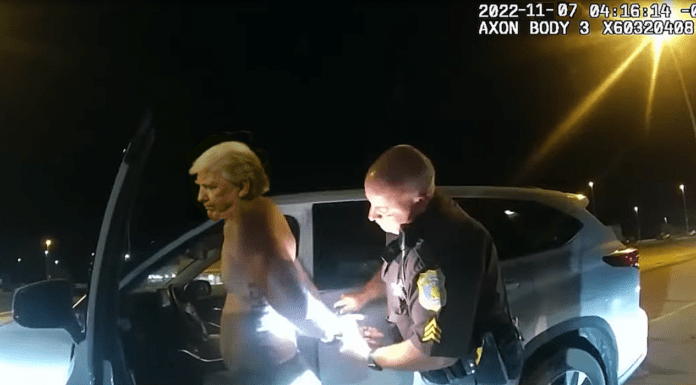(Robert Jonathan, Headline USA) Despite the Left’s unrelenting lawfare against Donald Trump, it seems premature or unlikely to assume that the former president will actually wind up behind bars, especially if he wins the 2024 election.
That appears to be the assessment of constitutional scholar Jonathan Turley based on procedure and logistics.
“[A] review of the legal proceedings ahead is a buzz kill for the lock–him–up crowd,” the constitutional scholar and George Washington Univiversity law professor wrote on his website. “Despite the proliferation of charges against Trump, there is nothing that guarantees that he will be sent to the big house instead of the White House, if elected.”
Turley, a self-described liberal, acknowledged that the Georgia and Florida indictments put Trump in serious legal peril.
Nonetheless, he insisted that Fulton County District Attorney Fani Willis’s proposed March 4 trial date, the day before Super Tuesday, was “wildly unrealistic.”
“Given the competing criminal and civil proceedings previously scheduled around the country, the Georgia trial may have to wait until after next year’s election,” he wrote. “There are also likely to be motions to remove the entire case to federal court.”
Former Trump chief of staff Mark Meadows is already said to have filed a motion to have the case transferred to federal court, which would potentially put Trump in double jeopardy given the pre-existing DOJ charges against him that may overlap with those put forth by Willis.
In litigation, procedure—including lawyers filing motions (i.e., pre-trial written requests for rulings of various kinds) in court back and forth—is sometimes everything.
Those were likely to forestall the trial’s start until well past Election Day.
Yet, even if a jury found him guilty, Trump could still maintain his candidate status, Turley added.
Turley reaffirmed the Contitution’s position that the GOP frontrunner could still seek office while his day in court in still pending—and, in fact, if convicted.
“Even if it were held in the midst of the election, a conviction would not bar Trump from appearing on the ballot or taking the oath of office on Jan. 20, 2025,” Turley said. “… Indeed, even a conviction would not prevent him from running for president or serving if elected.”
It would be up to Congress to initiate impeachment proceedings in order to oust the duly elected president if they deemed his high crimes or misdemeanors a burden upon the office.
Given the unprecedented nature of the circumstances, Turley also doubed that a conviction would land Trump in jail.
“If Trump is convicted, most courts would allow him to remain free pending appeals on the weighty constitutional and evidentiary issues raised by the Georgia case. That process could easily take a couple of years,” he said. “And if Trump were to win in 2024 and a judge were to order his incarceration during his presidency, there would be an immediate challenge.”
Turley also pointed out that it is hardly likely that Trump would be “thrown into general pop with a bar of soap and a weekly call.”
With the wheels of justice proverbially moving slowly, the professor emphasized that Trump is statutorily protected 24/7 by Secret Service bodyguards “and, if elected, he would have presidential duties to perform. The state may have to yield to federal authority in how Trump is held to allow him to carry out his duties and to accommodate his security detail.”
In that scenario, a legal challenge “would take time, and the federal courts could balance the state and federal interests by delaying any incarceration until after the term.”
Apart from a potential White House arrest, Turley did not address whether a radical, far-left prosecutor would try to make Trump wear an ankle monitor.
In a previous column, Turley hinted that the outcome of the 2024 election is more important than the outcome of the upcoming federal trials because no constitutional barrier exists, in his opinion, for a presidential self-pardon, if it comes to that.
Georgia is a different matter. Pardons currently come under the purview of the State Board of Pardons and Review, which can take up the matter only after five years post-conviction.
However, Trump would not have much more luck if the state legislature were to change the law to confer that power onto the governor. Incumbent Gov. Brian Kemp, who was re-elected last year to another four year term, is an outspoken NeverTrumper who recently reinterated his belief that the Fulton County charges against Trump were justified since there was no vote fraud in the state during the 2020 election.
The 2020 election in Georgia was not stolen.
For nearly three years now, anyone with evidence of fraud has failed to come forward – under oath – and prove anything in a court of law. Our elections in Georgia are secure, accessible, and fair and will continue to be as long as I… pic.twitter.com/jaru2iBDo7
— Brian Kemp (@BrianKempGA) August 15, 2023

